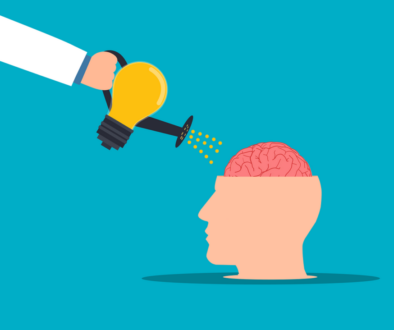Blessings Unearthed: A Journey from Depression to Gratitude
“Curse these kak-covered lenses, for they manipulate the beautiful light! Curse this sadness, and curse more the tears not allowed to fall! Curse this beauty inside, to which in despair I curse, for I know not how to bless such beauty already too beautiful for my comprehension.”
—Journal entry, 2016
Reading my own words from years ago, I’m reminded of the depth of pain I felt—even when surrounded by abundance and joy. This paradox—knowing your life is filled with blessings yet not feeling the joy they should bring—is a heavy burden. And from what I can tell, it’s not uncommon.
Moving through emptiness has been the longest, hardest journey of my life. I’m not there yet, but every step has been worth it. I’ve learned new skills, gained fresh perspectives, and adopted healthier habits.
The Haunting Silence of Unfelt Blessings
“Success without fulfillment is the ultimate failure.”
—Tony Robbins
Have you ever suspected that you haven’t felt a positive emotion in a long time? If so, you’re not alone.
In Ecclesiastes, it says:
“Here is another misfortune that I have seen on earth, and it weighs heavily on people: God gives a man riches, property, and wealth so that he lacks nothing that his heart desires, yet God does not enable him to enjoy the fruit of his labor—instead, someone else enjoys it! This is fruitless and a grave misfortune.”
—Ecclesiastes 6:1-2 (NET)
That sounds exactly like depression. It’s precisely what I was experiencing years ago. I can’t think of anything worse.
“God does not enable him to enjoy…”
If you’re feeling anything like this today, you’re not alone. Just knowing that can help. Reaching out—even finding someone else who has gone through it—can make us feel less isolated.
We might have a good life, making significant progress, having everything we want. But we don’t enjoy it. It leaves us cold.
When I wrote those painful words, I lived in a fantastic city, had no financial difficulties, and enjoyed good friendships. On paper, I had what many would consider a meaningful life, close to God. Yet, I felt darkness closing in.
“He had everything a man could want—except happiness.”
—F. Scott Fitzgerald, The Great Gatsby
I remember a friend commenting about someone who was depressed: “He’s got nothing to be depressed about.” As if it’s incorrect—or almost sinful—to feel depressed without a visible reason. But that’s precisely the point.
Many of us live like royalty compared to 100 years ago. We have every convenience at our fingertips—the internet, warm homes, food, loved ones, hobbies. And yet, all of that can feel like ‘meh.’
Guilt and Shame
“Shame is a soul-eating emotion.”
—C.G. Jung
Seeing others seemingly loving their lives while we can’t deepens our guilt and shame. I felt guilty for not valuing my blessings—like a fraud. It’s not that I didn’t want to value them; I just didn’t know how.
Instead, I felt a massive sense of incompleteness that grew into emptiness. Everyone else looked like they were loving life and their service. What was wrong with me?
This made connecting with others even harder. Life felt like a distant call from long ago. Eventually, I gave up trying to feel differently and began to hide. The part of us that needs to be heard became isolated—a desperate recluse. Hiding who we are leads to shame every time.
Addressing the Symptom, Not the Problem
Feeling numb, many of us fixate on adding more stuff. If we’re not feeling the stuff we already have, maybe we just need different stuff. But this is a problem in itself.
We try to fix this misfortune by adding more accomplishments, accolades, vacations, material possessions, careers, comfort, and status. More of everything.
Distraction.
There’s a thin line between distraction and addiction. For me, I kept myself extremely busy, filling my days with experiences. But the inner problem caught up with me. One morning, after downing coffee and getting ready for a full-on day in the city, I ended up vomiting. My body was saying, “Slow down,” but my mind craved distraction.
Why do we do this? Because addressing the external seems much more straightforward than addressing the inner self. We know exactly how to order that new thing on Amazon or grab another drink from the bar—it’s concrete, something we can touch.
Our inner self? Who knows what that is? What do we do with it? It gets pushed to the bottom of our priorities.
But adding more stuff isn’t the solution. Don’t waste your time.
Addressing your inner person is like looking at yourself square in the face. You might want to hide behind your stuff, but deep down, you don’t.
Procrastination keeps us from what’s important. Have you been procrastinating on this? I did for years.
Don’t waste your life. Today is the day to reclaim your sense of living. Stop burying your soul. Don’t just address the symptom—address the problem.
Finding Power Within a Challenging Text
I love Ecclesiastes, but I struggled with chapter 6, verses 1-2. It seemed to say that God doesn’t allow us to enjoy life. How disempowering!
But let’s take a fresh look.
The phrase “God does not enable him” uses the Hebrew word shalat, meaning “to domineer, be master of.” It’s used elsewhere to describe how people dominate each other.
So, the verse could be read as: “God does not dominate you so that you enjoy life.”
He doesn’t force you to enjoy life. He could, but He doesn’t. He chooses not to dominate your emotions.
This is a very different idea from Him intentionally blocking your happiness. He won’t force you to feel depressed, nor will He force you to feel amazing. He won’t get into your head and shift your brain chemistry. It’s not His job.
I get it—you might want God to step into your mind and alter it. I’ve prayed for this many times. But God doesn’t meddle with your mind because He believes you can do it yourself. He’s given you the responsibility. God believes in you!
You can find ways to flip the switches in your own head because He designed you to do it. He gave you the necessary tools. God wants you to take ownership of your inner state.
Finding Light Through Gratitude
Yes, the Bible dives deep into the complexities of the human condition. Unfulfillment and not fully feeling life are openly expressed in its pages. So we should expect to find solutions there too.
There’s a solution that cannot be ignored—one you might even roll your eyes at: Gratitude.
It’s a remedy backed by psychology, personal development, and global philosophies.
The Biblical Perspective
1 Thessalonians 5:18 says, “Give thanks in all circumstances.” Read that slowly.
Perhaps, to feel something, we need to first give something: thanks.
Another translation says, “Be thankful” (PHILLIPS).
Let’s explore the Greek word eucharisteó—to be thankful. It comes from joining two words:
- Eu: meaning good, a positive sense of wellness.
- Charis: meaning grace, a gift given freely.
Literally, it means “good grace.”
Gratitude is rooted in grace. It’s about recognizing the gifts given to us freely. The Christian faith explores this through Christ, the ultimate gift for humanity.
Connecting to Positive Psychology
Gratitude aligns with what positive psychology has taught us. It shifts our focus from what’s missing to what’s present.
A landmark study by Emmons and McCullough, “Counting Blessings Versus Burdens,” emphasizes subjective well-being—it’s how you see it.
Understanding that our darkness isn’t objective but subjective is a good start.
Gratitude is “the willingness to recognize the unearned increments of value in one’s experience” and “an estimate of gain coupled with the judgment that someone else is responsible for that gain.”
This may require a perspective shift from “I’ve worked hard for all of this!” to “Life has been so good to me!”
We can become obsessed with achievement—“It’s all me.” But we miss the grace surrounding us.
Dr. Lisa Miller describes “achieving awareness” as a narrow focus that, when overused, can carve pathways of depression and anxiety. The alternative is “awakened awareness,” understanding that life is a dynamic force we can attune to.
She writes: “It’s no longer me against the world, or me treading upon the world, but me hearing what life has to say, aware that life is meeting me where I am.”
We miss how kind the universe, life, and God have been to us. When I was focused on getting stuff out of life, I missed life itself.
Take a moment. Breathe.
You’re alive at this moment—you didn’t earn that. The air you’re breathing—you didn’t pay for.
You may have achieved a lot, worked real hard, accumulated family, a job, hobbies, education—your stuff. But if the fundamentals weren’t here, none of it would exist.
Grace is all around us, all the time. Our lives are built on grace.
To feel our blessings more is to recognize this and attune ourselves to it.
Where I Went Wrong and How You Can Go Right
“You need to learn to appreciate the small things of life, just to watch a flower and admire it, the warmth of sunshine. You know, simple things like that.”
—Journal entry, reflecting on words my father said years prior.
For much of my life, everything felt heavy. Where did I go wrong?
- I focused on living an easy, comfortable life—found nothing there.
- I chased materialism—empty.
- I sought recognition from others—hit a brick wall.
- Then I fixated on what was wrong —everything got unbearable
Looking back, I understand—it was a journey.
Life isn’t about big achievements, and it certainly isn’t about recognition from others. Depression often channels our attention on fixing it, which can make it worse.
My journaling helped increase self-awareness, but it also kept me fixated on myself.
What would I do differently now?
- Keep journaling, but also:
- Make more time for silence and prayer.
- Practice mindfulness.
- Journal about things I’m grateful for.
- Read uplifting books and scriptures.
- Drink less coffee and alcohol.
- Step away from busyness sooner.
It comes down to making space to appreciate the small things.
I was obsessed with myself and my problems. But grace was all around me—the things I didn’t work for, the person I already was, the love God communicated every single day.
I just had to slow down. Take a moment each day to breathe, pray, meditate, and love who I was.
It’s Worth the Work
“Patience. We wait for the sun to climb, we wait for its rays to reach our circumstantial hearts, the choices we have made.”
—Journal entry, 2016
Whatever you’re going through, whatever your beliefs, one thing is true: investing in becoming more grateful is absolutely worth it.
If you feel alone and depressed, I feel your pain. I really do. And I hope you’ve sensed a safe space here.
But more than that—I am living proof that you can become the person you want to be.
You can become grateful. You can learn to love your life.
It’s worth giving this your attention.
I was serving others on an empty tank. You’ll be able to serve others without regret.
You’ll live lighter, have a better relationship with yourself, feel more authentic, be an inspiration.
If you’re just starting, there are many habits and strategies you can try. Pick one and add it to your life toolkit.
It took me ages of trial and error. If you’ve tried before, try again. Keep trying until something sticks.
Results take time.
God gave you the responsibility and the power to feel the goodness of life.
God knows you can do this. I know you can do it too.
Lean into that faith, and let it be the wind beneath your wings.
Disclaimer: While mindset changes and spiritual perspectives can be transformative, it’s important to recognize that depression and other mental health issues can be complex. Professional medical intervention may be necessary. Seeking help is a powerful tool on our journey toward healing and empowerment.



